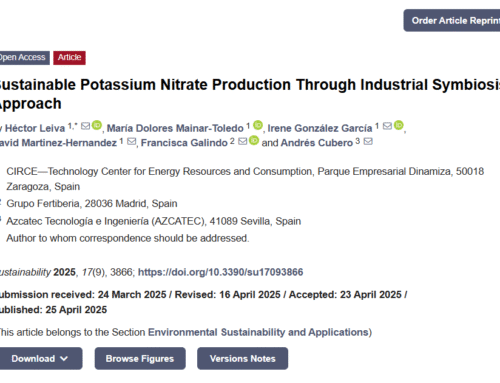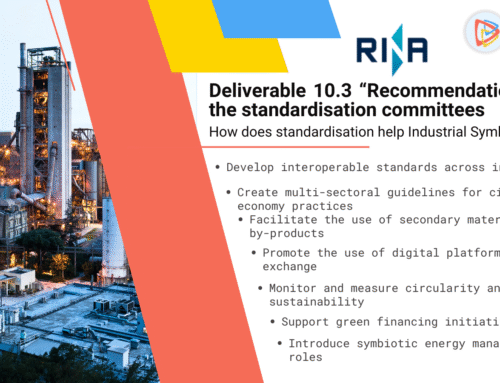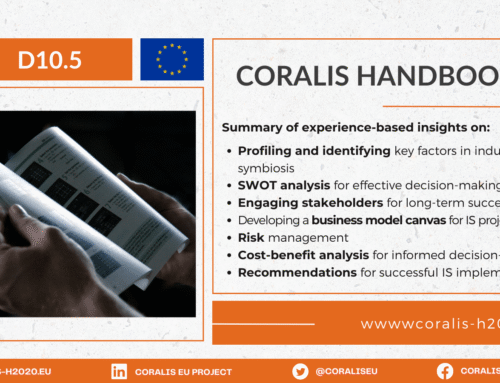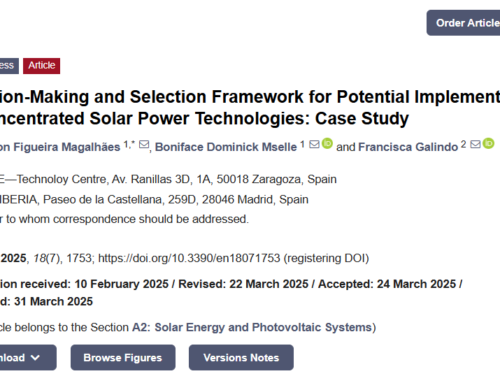On 14th of March 2025, our project partners from Linköping University (LiU) hosted its 5th learnings webinar, focusing on one of the most pressing challenges in the implementation of industrial symbiosis: financing. The session brought together key experts in the field, including Thomas Parker (Chief Innovation Officer, WA3RM), Fredrik Indebetou (Deputy CEO, WA3RM), Christophe Pinck (EU Affairs, Eyde Cluster | Chair, Working Group for Hubs4Circularity, Process4Planet), and Rod Jansen (President, Energy Efficiency in Industrial Processes – EEIP). The discussion provided valuable insights into the barriers and opportunities for securing investment in industrial symbiosis initiatives.
When is the right time to engage investors?
One of the key questions addressed in the webinar was the optimal timing for engaging with investors. The consensus among the experts was clear: timing is critical, and companies should approach investors only when they have a well-developed value proposition. Thomas Parker pointed out that this includes both understanding the physical flows and the business model. Christophe Pinck highlighted that businesses must be prepared to articulate the demand for their solution, ensuring they can answer the fundamental question: Who is willing to buy what you are offering?
Fredrik Indebetou further emphasized that companies should maximize opportunities within early-stage funding such as research grants, before seeking private investment. Early-stage funding is often consumed quickly but it is critical, that businesses develop their technological readiness and commercial case as much as possible before seeking external investment. Therefore, businesses should try to maximize use of early stage finding. Subsequent financing rounds are more difficult to obtain and therefore companies should be ready. Christophe Pinck also spoke about a policy recommendation to the EU commission to use cascade funding in industrial symbiosis projects. Cascade funding is a mechanism to distribute public funding in order to assist beneficiaries, such as start-ups, scale-ups, SME and/or mid-caps.
The challenge of investment commitment
Many businesses, especially small and medium-sized enterprises (SMEs) struggle with committing resources to explore industrial symbiosis opportunities, especially when there is uncertainty around financing. Rod Jansen pointed out that financial institutions are still unfamiliar with the concept of industrial symbiosis, making awareness-raising a crucial first step. Fredrik Indebetou also suggested that using the term “resource efficiency” instead of “industrial symbiosis” could make communicating with financiers easier. He also pointed out that understanding what the goals of the person managing are and addressing those is very important to gaining their commitment.
To help investors feel more secure in investing, Thomas Parker stressed the importance of long-term contracts between industrial partners. These agreements provide investors with reassurance by demonstrating commitment and reducing financial risks. However, as the discussion revealed, these contracts often come late in the process. The recommendation for businesses is to involve potential buyers from the earliest stages, securing commitments that go beyond expressed interest to concrete purchasing agreements.
A recurring theme in the webinar was the critical role of facilitators or intermediaries in securing financing. Christophe Pinck pointed out that facilitation hubs that specialize in helping SMEs in navigating investment challenges could be a key enabler. These hubs could provide mentorship and guidance, helping businesses prepare for their first investor conversations.
Context matters: Understanding the broader financial landscape
The discussion also acknowledged the external factors affecting financing in industrial symbiosis. Fredrik Indebetou highlighted how geopolitical and economic challenges—such as the recent energy crisis—have made businesses more hesitant to invest. Differences in national contexts further shape investment dynamics, with some regions facing greater financial and regulatory hurdles than others. Understanding these contextual factors is essential for businesses seeking to develop viable investment strategies.
Additionally, Rod Jansen noted that beyond financial structuring, regulatory compliance is another crucial factor for securing investment. Engaging with regulatory authorities early on can help mitigate unforeseen legal or permitting barriers that could otherwise derail financing opportunities. Moreover, Thomas Parker and Fredrik Indebetou mentioned the importance of understanding the structures in place such as the EU taxonomy for sustainable activities.
The webinar concluded with actionable recommendations for stakeholders looking to improve the financial viability of industrial symbiosis projects:
- Develop a clear value proposition – Investors need to understand the business case, including who will buy the product and at what price. This should build upon clearly articulated physical flows.
- Make maximum use of early-stage funding opportunities – Use early stage funding to develop a clear business case.
- Secure early commitments – Long-term contracts between industrial actors provide critical reassurance for investors.
- Communicate clearly – Communicate to investors using the terminology e.g. “resource efficiency” and the indicators and that they are familiar with and also how the project will help them meet their goals.
- Engage with regulators early – Understanding compliance requirements from the outset can prevent roadblocks later.
- Consider external market conditions – Economic and geopolitical factors influence investment dynamics and should be factored into business planning.
The insights from this session reinforce the need for strategic planning in securing financing for industrial symbiosis projects. As it was summarised, “Timing and networking are key—businesses must be strategic in choosing when and how to approach investors.”
CORALIS remains committed to supporting stakeholders in addressing financial barriers and facilitating the transition towards industrial symbiosis. Stay tuned for CORALIS Final Conference that takes place on 18-19 of March in Brussels, Belgium, and further discussions on enabling the circular economy.
For more information on CORALIS and the Final Conference, click here.






